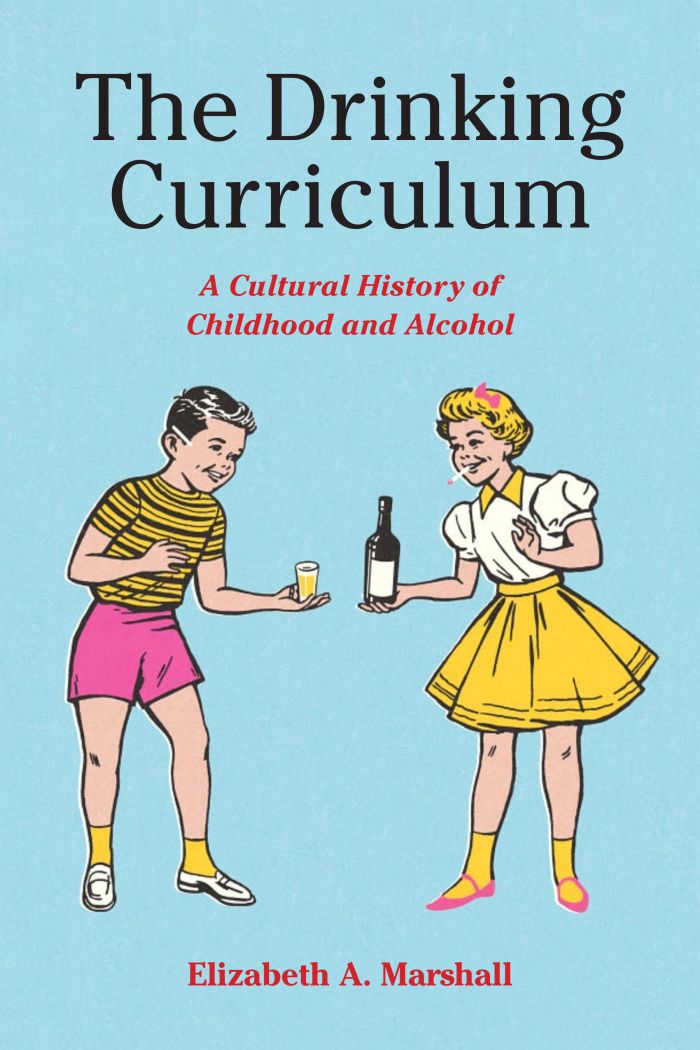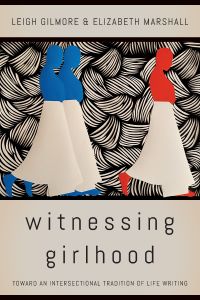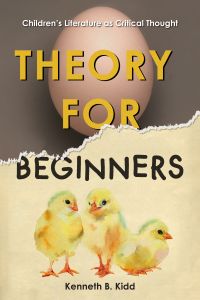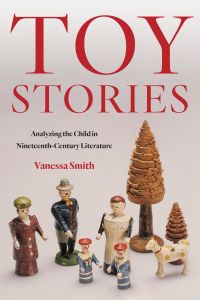The Drinking Curriculum
A Cultural History of Childhood and Alcohol

This book can be opened with

A lively exploration into America’s preoccupation with childhood innocence and its corruption
In The Drinking Curriculum, Elizabeth Marshall brings the taboo topic of alcohol and childhood into the limelight. Marshall coins the term “the drinking curriculum” to describe how a paradoxical set of cultural lessons about childhood are fueled by adult anxieties and preoccupations. By analyzing popular and widely accessible texts in visual culture—temperance tracts, cartoons, film, advertisements, and public-service announcements—Marshall demonstrates how youth are targets of mixed messages about intoxication. Those messages range from the overtly violent to the humorous, the moralistic to the profane. Offering a critical and, at times, irreverent analysis of dominant protectionist paradigms that sanctify childhood as implicitly innocent, The Drinking Curriculum centers the graphic narratives our culture uses to teach about alcohol, the roots of these pictorial tales in the nineteenth century, and the discursive hangover we nurse into the twenty-first.
Elizabeth Marshall's The Drinking Curriculum offers up a wildly intoxicating and brilliantly persuasive tour of our culture's tales of childhood and boozing, innocence and loss. I know of no scholarly book that is at once so humorous, startling, and deeply important, ranging from comedy to angry denunciation, all presented to us in prose that rips into our minds – and hearts.—James R. Kincaid, author of Erotic Innocence: The Culture of Child Molesting
A compelling case study of precisely how our culture’s insistence on childhood purity obscures the violence that maintaining the veneer of innocence requires. The Drinking Curriculum offers an incredibly rich set of observations that ask us to think about our assumptions around maturity, sovereignty, purity, and innocence in provocative new ways.—Anna Mae Duane, Editor of The Children's Table: Childhood Studies and the Humanities
Like the most epic of nights out, you will finish The Drinking Curriculum with new ideas, new ways of seeing old ideas, and a smile on your face. Beth has brought the bubbles: Živjeli – cheers!—Libri & Liberi
At 103 pages of instruction, much like the fictional child that teaches us about alcohol, The Drinking Curriculum may seem small, but you should not judge it by its size, for it has a lot to teach us. With more than 40 great color and black-and-white illustrations and examples, the book is a quick but educative read that leaves the reader questioning their own relationship with alcohol and contemplating their own experiences with the drinking curriculum.—A. Manus, The Journal of Popular Culture
Marshall makes a convincing case that the drinking curriculum indeed illuminates anxieties and preoccupations regarding alcohol.—Choice Reviews
The Drinking Curriculum manages to grapple with the social implications of alcohol use in a way that is often witty and irreverent, but still serves up an incisive social and textual critique. . . Marshall’s meticulously researched study offers a new intervention between two areas of cultural studies.—International Research in Children's Literature
Introduction: Learning to Drink | 1
Lesson One: D is for Drunkard | 15
Lesson Two: No Pets, No Drunks, No Children | 34
Lesson Three: “Friends Don’t Let Friends Drink and Drive” | 49
Lesson Four: It’s Funny When Kids Drink | 63
Lesson Five: Mommy Needs a Cocktail | 80
Final Exam | 99
Acknowledgments | 105
Notes | 107
Index | 129




